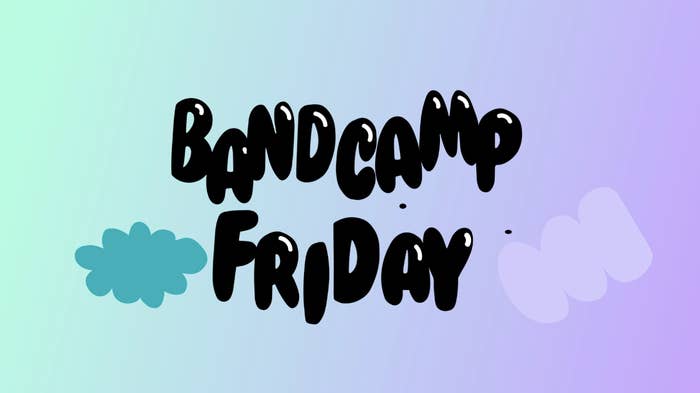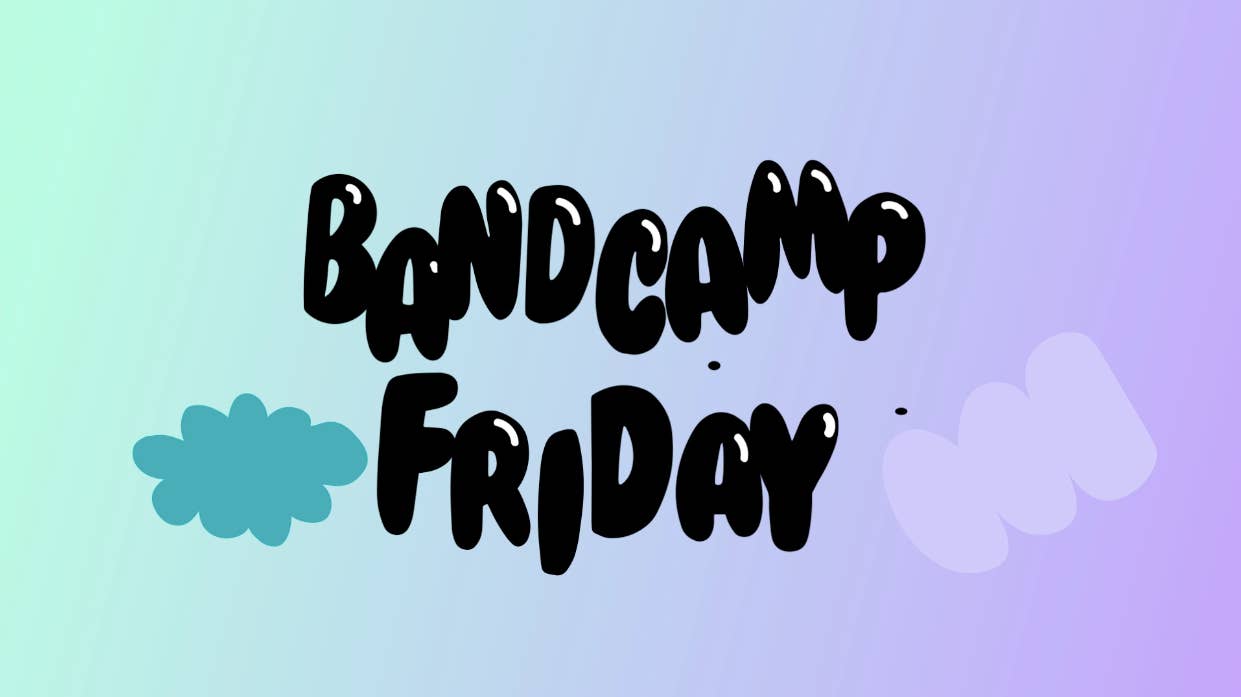
The Bandcamp Fridays initiative started off in earnest. “I think the pandemic overall just highlighted the need to directly support artists,” says Ethan Diamond, CEO and co-founder of the 12-year-old music platform.
“We saw an opportunity to raise awareness around the fact that artists need this,” he adds. “So we started talking about: What are the different things we could do to support the community at the time? Ultimately, we settled on the best [idea] just being, ‘Hey, we should just have a day where all of the money goes directly to the artists.’”
March 20, 2020 was the first day they chose to waive their revenue share, and fans supported artists to the tune of $4.3 million. They continued the initiative, calling it Bandcamp Fridays. On the first Friday of each month (aside from a Juneteenth commemoration) Bandcamp users can sell their music and merch without having to split the revenue with Bandcamp.
The initiative has since helped indie artists and labels gross $44 million on Bandcamp Fridays over the past year. A considerable amount of those users in turn donated their proceeds to causes, and Bandcamp also dedicated days in 2020 to give 100% of their revenue share to the NAACP Legal Defense Fund and Transgender Law Center.
“We’re an artist-first company in every way. The business is entirely based on a revenue share. We don’t make any money unless the artist makes a lot more money.” – Bandcamp CEO Ethan Diamond
The pandemic has been challenging for artists on all levels, but it’s been a little easier for Bandcamp users and listeners alike, who have something to look forward to on the first Friday of every month.
Bandcamp started in 2008 with the goal of offering a more equitable model than DSPs, which traditionally offer artists a small percentage of a penny per stream. The company has helped facilitate fans paying artists over $686 million since the platform’s start, and $171 million in total over the past 12 months.
“We’re an artist-first company in every way,” Diamond tells Complex. “The business is entirely based on a revenue share. We don’t make any money unless the artist makes a lot more money.”
The platform takes 15% of digital sales, and 10% of merchandise sales. The digital share drops to 10% for artist accounts that accrue $5,000 “and stays there, provided you’ve made at least $5,000 in the past 12 months,” as the official site clarifies. But on Bandcamp Fridays, artists and labels get the full cut.
Diamond reflects on the staff being wary about how the initial Friday would turn out, but being pleasantly surprised at the results: “We didn’t have an idea that it was going to be called Bandcamp Fridays or that it would keep going. It just seemed clear to us that we had to do something and we weren’t really sure what the response would be, but it went really, really well.”
The proceeds went into the pockets of artists like Brooklyn-based artist-producer A. Sarr, who tells Complex that he was more than satisfied with the reception to his “3am” beat. “I have never made more money on a track ever than I did that one Friday,” he reveals. A. Sarr says that he had already been planning to put the Animal Crossing-sampling beat out in celebration of the game on March 20, and the revenue-waiving initiative came at just the right time for him.
“Knowing that I could put something out these Fridays gave me new concepts for music that I was making,” A. Sarr says. “I would [previously] make so many throwaways and never do anything with them, and then after Bandcamp Fridays happened, it was like, ‘Oh, I can put it out as a compilation instead of having it sitting in my hard drive. There is a place for this work that I’m doing.’”
“It was really a case of generosity inspiring even more generosity, and that was just really wonderful to see.” – Ethan Diamond
Brooklyn-based artist and owner of Purple Tape Pedigree (PTP), GENG PTP, agrees, noting he was “delighted to see [Bandcamp] doing that.” He says PTP has dropped “upwards of 25” releases on Bandcamp Fridays (including Ve·Loc·i·Ty, featuring Complex rapper to watch maassai). He hasn’t tabulated the total proceeds for his label over this period, but knows that he’s helped several artists help themselves.
He says Bandcamp Fridays are “way more useful than posting a black box or having a symbolic moment of silence on a stream or something like that.” During the tumult of nationwide uprisings last June, when the music industry was seeking to show a semblance of solidarity with its Black creators, Bandcamp donated 100% of their share of Juneteenth (June 19) sales to the NAACP Legal Defense Fund, and they plan to do the same on every Juneteenth going forward. Dozens of labels had already donated all or a portion of their proceeds to various social justice organizations on June 7.
GENG says that a “high portion of the proceeds” of two June 5 projects went to Black trans organizations. The label also donated proceeds of their back catalog sales to other “Black-owned, Black justice initiatives” (according to Bandcamp). They also included a PDF of Alex S. Vitale’s The End Of Policing with all digital releases.
“That’s a direct interaction or engagement that will help aid this person, who lost their literal weekly pay,” GENG says, adding that the revenue-waiving helps artists who “were busting their ass to live in New York basically, to pay rent and eat.”
“It was really a case of generosity inspiring even more generosity,” Diamond says of Bandcamp artists and labels donating their revenue to other organizations. “And that was just really wonderful to see.”
Bandcamp’s pre-2020 single-day revenue high was $1 million, spurred by a 2018 voting rights initiative. The second Bandcamp Friday grossed $7.1 million. “The growth was sudden and sustained,” Diamond says of Bandcamp Fridays. “Some of those days are 10 times bigger than our normal Fridays. But the most interesting thing is that one of my concerns was, ‘People are going to care at the beginning and then they’re going to potentially burn out and stop caring.’ And that hasn’t happened.”
Diamond noted, “Even when it’s not a Bandcamp Friday—when it’s just a regular day where we have our fee of the revenue share that we have on sales—the average is 82% that goes directly to artists. Typically, an artist will get the money within 24 to 48 hours of a fan buying something. It’s great, because I know it’s made a huge impact for artists. We’re hearing from so many people that it was helping them pay rent, helping them buy food, groceries.”
Both GENG and A. Sarr say that they and their peers have benefited greatly from Bandcamp Fridays, but they also point out some of the unintended creative and industrial consequences behind the initiative.
“How do we create a landscape that’s more built on honoring time and not acceleration?” GENG asks, noting the dynamic of consumers buying a bunch of music on Bandcamp Fridays but not actually listening to it all. “I think possibly [Bandcamp Fridays] two times a month might actually just help that at least.”
Sarr adds, “I’m not going to say this is a dark side to it, but it did create some pressure, especially in communities of super underground artists, that if you weren’t dropping something on Bandcamp Friday, it would be like, ‘What are you doing? Are you even working?’”
But overall, both artists are excited about Bandcamp Fridays, which A. Sarr calls “a saving grace.” He recalls, “If we didn’t have that, then I don’t know what would’ve happened for a lot of my peers. A lot of my peers were doing just fine gigging as often as they wanted to, and as often as they could have, but without getting [live show] revenue, Bandcamp really was there to pick up the slack and pick up the fold.”
Both artists say they will be taking advantage of Bandcamp Live, a service currently allowing users to stream performances while seeing donations and purchases from supporters in a live chat. “I don’t think an online concert is any replacement for the real thing, and we’re not pretending that it is,” Diamond clarifies. “And when shows come back, I can’t wait to get back out and see shows in person. But until that’s the case and, and even after it is the case, we’re doing Bandcamp Live as a way for artists to perform for their fans all over the world and for those fans to directly support them. We’re waiving our revenue share completely on all ticket sales.”
It’s been announced that Bandcamp Fridays will continue through at least the first half of 2021. Diamond says after May “we’re going to reassess and see where things are. But really the whole point of this is that it’s tied to the pandemic and artists’ inability to tour. And as long as that’s happening, we’re going to keep doing these.”

